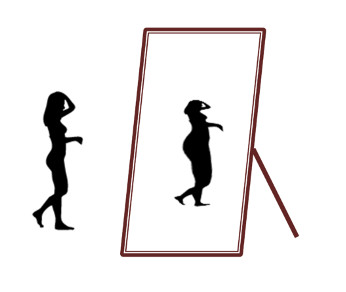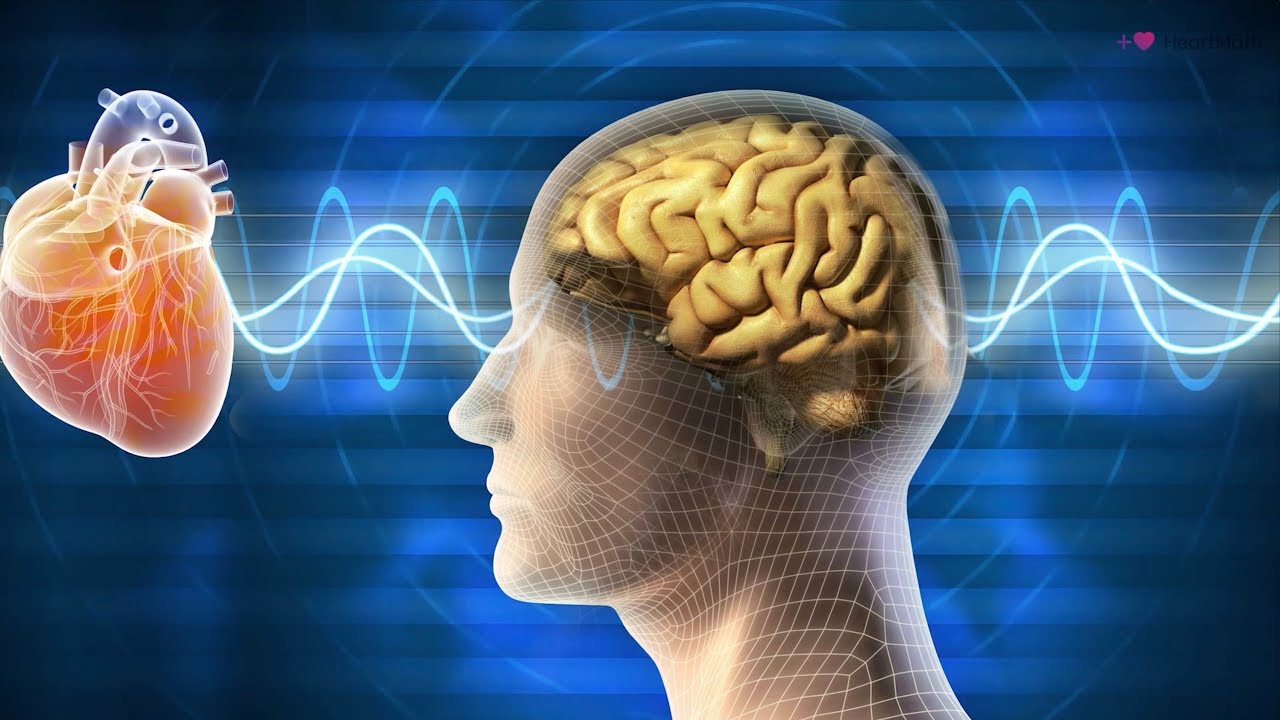Eating Disorder Recovery
You can overcome an Eating Disorder
Eating disorders are a major problem in our society but there are viable solutions. Solutions to eating disorders can include counselling, natural remedies, psychotherapy, and spiritual interventions which must include compassionate love and acceptance.
 Eating disorders are prevalent in both Canada and the United States in compared to the rest of the world. The amount of girls and women compared to boys and men who have eating disorders vary greatly. The latest statistics of eating disorders in Canada was in 2002 at the time of this writing of which 1.5% of females, ages 15-24 have an eating disorder. Of Males there is an overall lower ratio of 1 male to every 10 females who have an eating disorder and of those males who have an eating disorder a larger percentage are binge eaters unlike with females.
Eating disorders are prevalent in both Canada and the United States in compared to the rest of the world. The amount of girls and women compared to boys and men who have eating disorders vary greatly. The latest statistics of eating disorders in Canada was in 2002 at the time of this writing of which 1.5% of females, ages 15-24 have an eating disorder. Of Males there is an overall lower ratio of 1 male to every 10 females who have an eating disorder and of those males who have an eating disorder a larger percentage are binge eaters unlike with females.
What is an eating disorder?
An eating disorder is classified as a mental disorder which is defined by abnormal eating habits that affects a person’s mental and physical health and wellbeing.
What types of eating disorders are there?
According to the DSM-V, The Diagnostic and Statistical Manual of Mental Disorders the following eating disorders are listed and explained. Below is a complete list of the disorders but with a brief explanation of each.
Anorexia Nervosa
This is where a person easts very little and have a low body weight.
Bulimia Nervosa
In Bulimia a person eats a lot and then tries to rid themselves of the food they have eaten.
Binge Eating Disorder
This is exhibited when a person eats large amounts of food in a short period of time
Pica
This eating disorder is where a person will eat non-food items.
Rumination Disorder
This is where a person will force illumination of food through regurgitation.
Avoidant/Restrictive Food Intake Disorder (ARFID)
In this disorder a person will have a lack of interest in food.
Other Specified Feeding or Eating Disorder (OSFED)
This eating disorder causes significant distress or impairment but does not meet criteria for another eating disorder.
Unspecified Feeding or Eating Disorder (UFED)
This diagnosis is given when a person’s symptoms do not fit any other eating disorder to determine a specific diagnosis. This UFED label can change once things become clearer.
What are the main causes for eating disorders such as anorexia, bulimia, or binge eating?
Some theorize that it is genetic but there is insufficient evidence for this. If you look at a global picture North America has the largest population of eating disorders in the world. The more tangible causes of eating disorders can include:

- Irregular hormonal balance
- Nutritional deficiencies
- Environmental toxins affecting healthy brain and body function
- Emotional and physical neglect in childhood
- Dysfunctional family dynamics
- Self-loathing or hatred
- Sexual abuse
- Abuse(s)
- Trauma(s)
- Professions and careers that promote weight loss and thinness
- Cultural or peer pressure
- Stressful life changes or transitions
- Divorce
- Substance usage such as drugs and alcohol
- Depression and anxiety
What are some of the signs of an eating disorder?
It is best to have a professional assessment to determine if an eating disorder exists, which one it is and the best courses of action for treatment. Preliminary assessments can be done through questionnaires like the one below and also by asking yourself if any of the following symptoms are applicable:
- Constant weight change
- Constant and chronic dieting even though the weight is below normal
- Obsessing over calories and/or fat content of foods
- Constant engagement in eating patterns that are ritualist in nature, such as cutting up food in tiny pieces, or hiding food, and/or eating alone
- Constant fixation of food, recipes, or cooking, where they may cook detailed meals but not partake of them
- They are depressive or lethargic
- Avoidant of family, friends or social functions
- An alteration between overeating and abstinence or fasting
Note: it is advisable that professional advice and help be sought out if there is any hint of suggestibility that you or someone you may know may have an eating disorder.
New Hope Counselling Centre located in Burlington, Ontario is an outpatient counselling centre that can effective support. We work in collaboration with physicians and family members.
What are some of the dangers of an eating disorder?
There are a number of dangers that are associated with having an eating disorder, which can include numerous and various issues. Besides psychiatric and issues which either are causal or contributory to anxiety, depression, PTSD, Dissociative Disorders and OCD.
Dangers of Anorexia:
- Damage to vital organs of brain and heart
- Low blood pressure
- Thyroid issues
- Skin, nail, and hair damage
- Dehydration
- Constipation
- Greater susceptibility to illness due to poor immune function
- Loss of calcium resulting in various issues such as bone breakage, heart issues including heart failure
- Brain shrinkage
- Substance abuse
- Suicide

Dangers of Bulimia Nervosa:
Many of the dangers have been listed above under “Dangers of Anorexia” but specific to Bulimia are the following:
- Stomach rupture
- Loss of vital minerals such as potassium due to purging
- Stomach acid can destroy the teeth
- Inflammation of the esophagus
Dangers of Binge Eating Disorder:
This list is specific to this disorder but may include other dangers previously listed above.
- High blood pressure
- High cholesterol
- Type 2 Diabetes
- Gallbladder disease/dysfunction
- Heart disease
- Depression
What is the best treatment for an eating disorder?
The best treatment for an eating disorder will be tailored to fit each individual’s needs at New Hope Counselling Centre based in Burlington Ontario. Treatment for an eating disorder is specific to each individual as to whether or not it needs to be in an inpatient clinic or an outpatient clinic (New Hope Counselling Centre). Treatment will comprise several different approaches and professionals so that a whole person approach is achieved for best results. Eating disorders are generally addressed with any or all of these professionals: medical doctor, holistic nutritionist, , psychiatrist, psychotherapist, social worker, naturopath, homeopath, mental health therapist, holistic health practitioner, and/or an ordained minister.
Each professional will be able to address each specific area of concern in order to have care that is complete. For each model of care can address:
- Medical care can monitor and address where health risks are concerned.
- Nutritional care that can give guidance for normal eating and develop a healthy eating style.
- Psychotherapy addresses the underlying , socio-family, traumatic life events and help them through emotional stabilization, communication skills, healthy relationships, reprocessing of trauma and other adverse experiences.
- Natural remedies can help shift the balance of both mind and body helping to resolve underlying issues.
At New Hope Counselling Centre we work along side professionals with family when helping a person with an eating disorder to help manage symptoms, balance lifestyle and nutrition but also to help work through root issues that have been the source of the disorder. We are here for you!
Eating Disorder Quiz
Take Quiz
Answer as honestly as you can, write down your answers and you use them when you come in for therapy and/or for journaling.
I am afraid to eat freely because I think about food all the time.
3 – All the time
2 – Most of the time
1 – Some of the time
0 – None of the time
I would rather be somewhat unhealthy than gain 2 pounds or a kilogram.
3 – All the time
2 – Most of the time
1 – Some of the time
0 – None of the time
I don’t want to look at my body so I avoid doing so because I have strong feelings about it.
3 – All the time
2 – Most of the time
1 – Some of the time
0 – None of the time
My list of ‘bad’ or ‘wrong’ foods is long and I have lots of them that I try to never eat.
3 – All the time
2 – Most of the time
1 – Some of the time
0 – None of the time
When I am hungry I feel good because it means that I am strong and doing good.
3 – All the time
2 – Most of the time
1 – Some of the time
0 – None of the time
There are times I have episodes where I eat a lot.
3 – All the time
2 – Most of the time
1 – Some of the time
0 – None of the time
If I feel that I have eaten enough food to gain weight I will get rid of the food and calories by doing some or all of the following: vomiting, purging, use of laxatives, exercises.
3 – All the time
2 – Most of the time
1 – Some of the time
0 – None of the time
I have ways of checking the shape or size of my body, like measuring myself, by putting on certain clothes, or looking at or touching certain parts of my body.
3 – All the time
2 – Most of the time
1 – Some of the time
0 – None of the time
I believe that my life would be much better if I could get to my ideal weight.
3 – All the time
2 – Most of the time
1 – Some of the time
0 – None of the time
Scoring:
0 to 3 – You are considered to be in the normal rage of body-image perception and eating.
4 to 11 – You are considered to be in a cautionary state of developing an eating disorder.
10 to 14 – You are considered to need help and should seek out a professional to get immediate assessment and help.
15 or more – You have an eating disorder and should get immediate help from a professional.
At New Hope Counselling Centre we can help you to move forward and heal, contact us today.
EATING DISORDERS AMONG GIRLS AND WOMEN IN CANADA, Report of the Standing Committee on the Status of Women, Hélène LeBlanc, Chair, NOVEMBER 2014, 41st PARLIAMENT, SECOND SESSION, http://www.ourcommons.ca/DocumentViewer/en/41-2/FEWO/report-4
Understanding Statistics on Eating Disorders, 2014, http://nedic.ca/know-facts/statistics
Statistics Canada, Section D – Eating disorders, 2015, http://www.statcan.gc.ca/pub/82-619-m/2012004/sections/sectiond-eng.htm
DSM-5 and Eating Disorders, KennethW.Willis, MD, Medical Director, Eating Disorder Treatment of NY—Monte Nido Manhattan, 2015, https://www.edcatalogue.com/dsm-5-eating-disorders/

Written by: James A. Miklos, M.C.C., R.P. - James has been counselling, providing mental health therapy for over 30 years, is a public speaker and writer.
© 2019 James A. Miklos. All rights reserved. To copy or quote any of this material this entire citation and credit must be posted.
More Resorces To Better Your Life!





